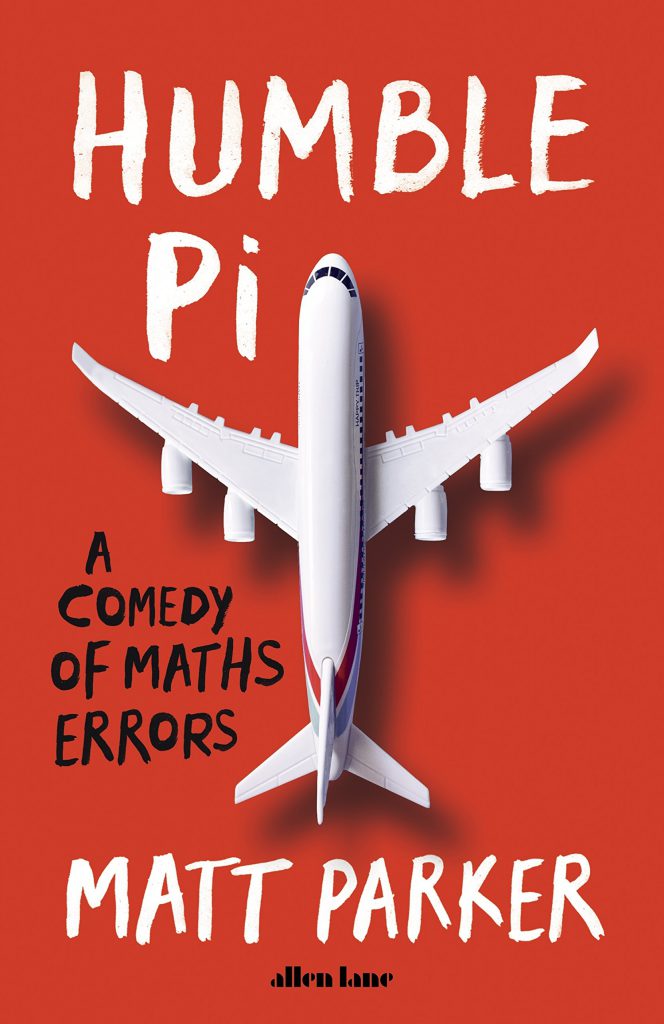
There are many things I admire about Matt Parker (or, to give him his full title, Friend of the Aperiodical, Mathematician Matt Parker) and his work, but probably top of the list is how he switches, apparently effortlessly, between modes. One minute, he’s showing off a fax machine to a group of hard-core geeks with Festival of the Spoken Nerd; the previous, he’s inspiring a “lively” bottom set of year 9s, after putting together a Numberphile video for people somewhere in between.
While Humble Pi – A Comedy Of Maths Errors is pitched firmly at the last of those groups – for a popular maths book to hit the top of the Sunday Times bestseller list, it really needs to be – there’s plenty in it for the others.
It tells the story of mathematical error after mathematical error – the context and the consequences, from the relatively trivial (posters where the cogs won’t turn) to the potentially-or-actually-deadly (collapsing bridges, mis-calibrated medical equipment, under-fuelled aeroplanes, that sort of thing).
Others might like it for the comedy – I sometimes get the sense Parker treats reality as he would a persistent heckler – or for the storytelling (I envy his mathematical narrative skills, giving enough background to understand what’s going on without going off on too many tangents), or even for the geeky details regarding the page count and index. For me, the highlight came once the book started talking about different models of avoiding disasters – rather than blaming individuals for errors that lead to disasters, accepting that errors happen and designing systems that accommodate and correct them.
To be hyper-critical, I sometimes felt the book was a bit disconnected: here are some errors of one type… here are some errors of another type… and I’d have liked to have seen more of an explicit underlying message develop on the way through; however, this may have been one of the three deliberate errors referred to in the blurb.
At the book launch, Parker pointed out that Humble Pi, at first glance, is somewhat off-message: he spends a great deal of time trying to convince people that it’s perfectly ok to make mistakes when learning maths; it’s not as if anyone’s going to die. It’s a difficult balancing act, writing a book that (for example) raises an arch eyebrow at recidivist death-ray architects while remaining sympathetic to error-makers, but Parker pulls it out of the bag. A cracking read.
One Response to “Review: Humble Pi, by Matt Parker”